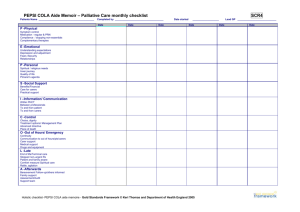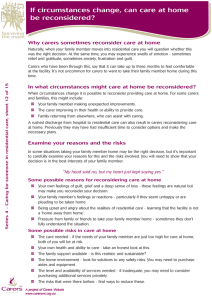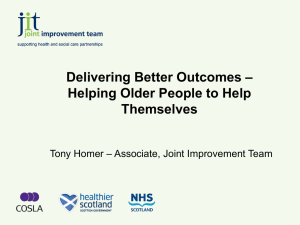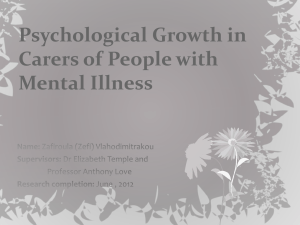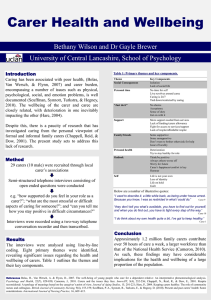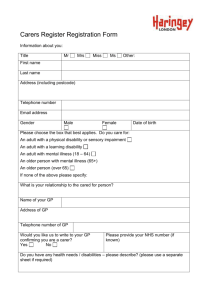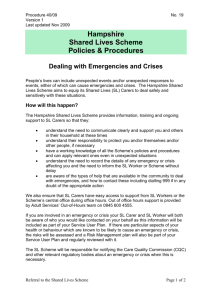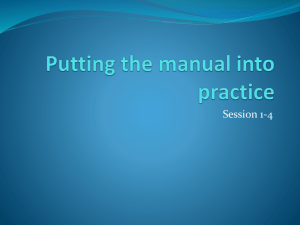Who cares?
advertisement
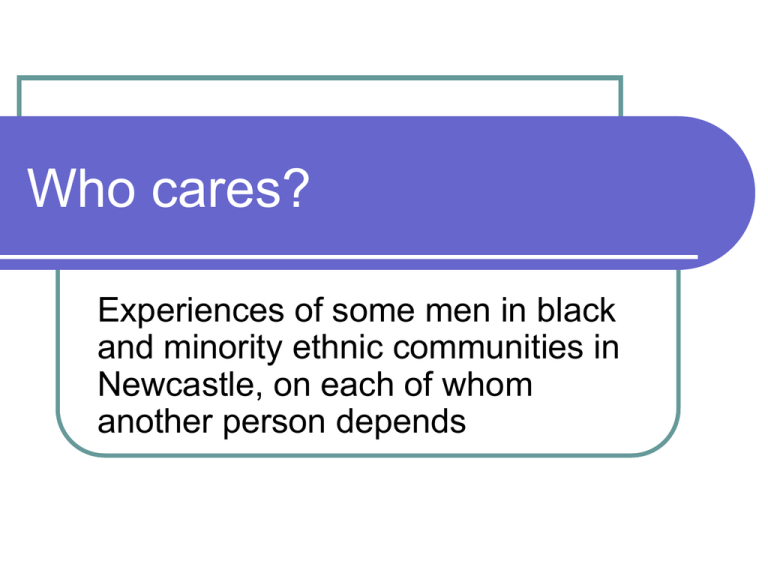
Who cares? Experiences of some men in black and minority ethnic communities in Newcastle, on each of whom another person depends Exploratory interviews Response to identified gap 14 men took part in in-depth interviews Bangladeshi, Indian, Chinese and Pakistani Age range from teens through mid-twenties, thirties, forties, fifties, sixties to early seventies Wives, mothers, fathers and mothers-in-law depend on this group of men, because of degenerative physical illness, mental ill health, cancer and vascular disease Interview schedule Do you think of yourself as a carer? Can you tell us about yourself as someone on whom another person depends? Was there an expectation that you’d take on caring responsibility? Can you tell us about any support you get? Emerging themes Labour of love Mixed feelings Significance of gender Protective element of religious belief Labour of love: “Nothing special” I never thought of myself as a carer. It’s a duty of love. Saying ‘carer’ takes away my positive sense of duty. ‘Carer’ sounds like a job. I’m happy to do it I’m not doing anything special That’s how it should be .... If they are family then you look after them Labour of love: Hard work Balancing caring with school/paid work/ university and social activities I have to negotiate time for studying When you have to get up in the night and there’s work next day, you think “Do I have to….” Mixed feelings There’s a sense of needing to sacrifice some of my youth It’s difficult when there’s a crisis and I have to respond. Though you do adapt to it and it makes you stronger It’s been a hard journey with a sense of battling. Sometimes I’ve felt helpless Sometimes it feels as though I have no choice – we’re stuck together Gender When she took ill she needed someone to look after her … now it’s my turn, my time and I’m doing my best When we visited (country of origin) some people were surprised at the level of personal support I give her. I wasn’t ashamed Without men in this family Mum couldn’t have managed the lifting. A daughter can’t change and wash a father, out of respect There’s an expectation in the family that I and my brothers will do these things though it can still be embarrassing for us I still go out to work – for women it can be so much more difficult Protection of religious belief As a Christian, looking after my wife is part of being married for life, and part of loving her It doesn’t matter who you are caring for, you need to look after yourself, in line with Islamic teaching. You have to help yourself before you can help others Support I don’t want to admit there’s something wrong. It would be good to have someone to talk to, to be able to move on with your life I didn’t know anything about the support available before. It’s a new journey for me The Carers Centre is really useful. If you have any problem they will signpost and offer help. There’s pampering and massage Importance of community support – “It’s good to socialise and talk about how I feel” Follow on Scholars could step in and explain issues for carers from Islamic perspective Need to promote care workers because a lot of families don’t know about the support … it’s not sold to them Potential of outreach to men’s clubs and mosques and other religious places (The Princes Royal Trust for Carers, 2010, Caring for all carers: A survey of services for BME and seldom heard carers in Carers Centres and Crossroads Care Schemes)


